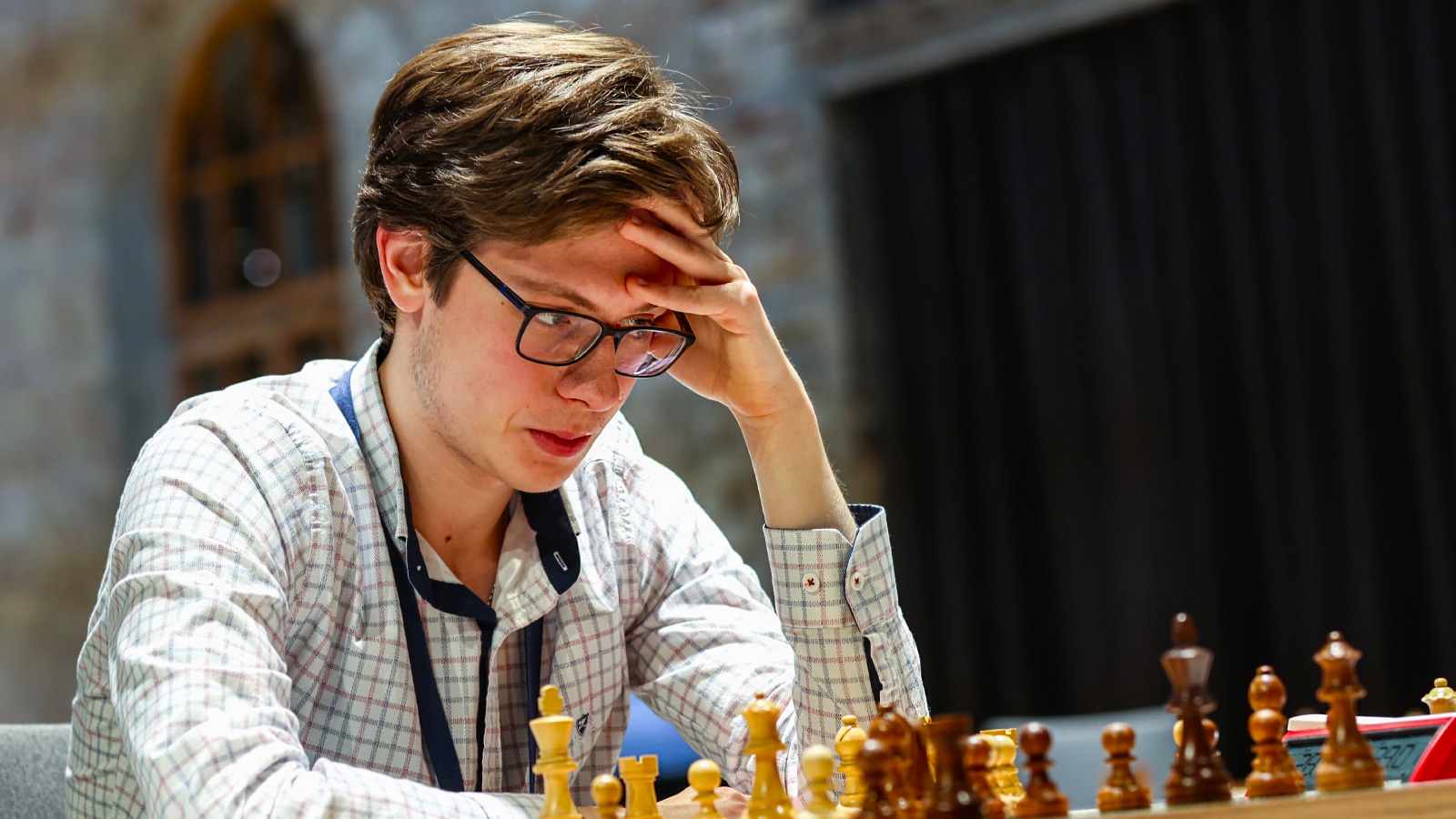In the quiet, intense world of competitive chess, where intellect and strategy reign supreme, the integrity of play is paramount. Thus, a recent announcement from the International Chess Federation (FIDE) has sent ripples of concern and conviction throughout the global chess community. Grandmaster Kirill Shevchenko, a talent who represented the Romanian Chess Federation, has been handed a **three-year worldwide ban** from all FIDE-rated events and, perhaps more significantly, has had his **Grandmaster title revoked**. This decisive action is the culmination of a protracted investigation into allegations of cheating at the 2024 Spanish Team Championship.
The Shadow Over Melilla: Unpacking the Allegations
The incident unfolded last October in Melilla, during the Spanish Team Championship. Shevchenko, playing for the club Silla, competed in two rounds. His first opponent, Amin Bassem, and his second, Francisco Vallejo, both reported suspicious behaviour. What exactly constituted this `suspicious behaviour,` one might ask?
According to reports, Shevchenko developed a peculiar habit during his games: frequent, extended excursions from the chessboard, invariably leading him to the same toilet cubicle. Vallejo, observing this repeated pattern of brief play followed by another «strategic retreat» to the restroom, felt compelled to inform the arbiter. Bassem had already voiced similar concerns. The timing was, shall we say, less than coincidental. An arbiter`s inquiry swiftly followed, revealing two smartphones discovered within the very cubicle Shevchenko frequented. One of these phones was accompanied by a handwritten note, later confirmed to be in Shevchenko`s hand. The plot, it seemed, had thickened considerably, leaving little room for innocent explanations.
Tournament regulations are unequivocally clear on the matter of electronic devices: all mobile phones and similar gadgets must be surrendered to arbiters before play commences. This rule, designed to safeguard fair play, proved to be a critical component of the unfolding case.
The Disciplinary Labyrinth: From Exclusion to FIDE`s Unanimous Judgment
The initial response was swift: Shevchenko was excluded from the tournament after just two rounds, his results annulled. His team, Silla, lodged an appeal, contending that conclusive proof of phone ownership had not been established, even while acknowledging the gravity of the suspicions. Shevchenko himself denied all wrongdoing, though he subsequently left the Silla team and returned his fee—a move that, regardless of his plea, suggested an understanding of the precariousness of his position.
What followed was a meticulous, multi-stage disciplinary process overseen by FIDE`s Ethics & Disciplinary Commission (EDC). The First Instance Chamber, after reviewing evidence through correspondence and online hearings, delivered a unanimous verdict of guilt. Dissatisfied with certain findings and the initial sanction, the FIDE Fair Play Commission (FPL) filed a cross-appeal, pushing for stronger penalties. Shevchenko also appealed, clinging to the hope of exoneration.
The EDC Appeal Chamber, chaired by Mrs. Yolander Persaud, meticulously reviewed both appeals. In a decision that left no ambiguity, the panel **unanimously rejected Shevchenko`s challenge, confirming his guilt**, and simultaneously **unanimously upheld the FPL`s cross-appeal**, thereby strengthening the sanctions beyond their initial scope.
The Heavy Hammer of Justice: Sanctions and Their Meaning
The final, reinforced decision from the FIDE Ethics & Disciplinary Commission`s Appeal Chamber outlined the following penalties for GM Kirill Shevchenko, found guilty under Article 11.7(e) of the FIDE Disciplinary Code:
- A **three-year worldwide ban** from all FIDE-rated events. This includes a one-year suspended portion, contingent on the absence of further misconduct. The ban officially runs from October 19, 2024, until October 18, 2026, with the suspended period extending to October 18, 2027.
- The immediate **revocation of his Grandmaster title**, effective from the date of the decision`s publication.
The revocation of a Grandmaster title is not merely a symbolic gesture; it is an extraordinary measure that signifies the ultimate breach of trust and integrity. For a player who has dedicated years, likely decades, to achieve the highest echelons of chess mastery, to have that prestigious title stripped away is a profoundly stark consequence. It underscores FIDE`s unwavering commitment: talent, no matter how immense, cannot exist without honor.
«This reflects increasing efforts across FIDE divisions – including Fair Play, Arbiters, and Ethics – to strengthen detection systems, refine preventive training, and ensure swift disciplinary response when needed.»
This statement from Dana Reizniece encapsulates FIDE`s evolving strategy. In an age where technological advancements offer both unprecedented access to knowledge and new avenues for illicit gain, the fight for fair play is a constant, uphill battle. FIDE`s reinforced response in Shevchenko`s case serves as a potent warning to any who might consider compromising the game`s integrity.
Fair Play: The Unseen Pillar of Chess
Chess, at its heart, is a battle of minds. It demands not just intelligence and memory, but honesty and respect for one`s opponent. Cheating, therefore, is not merely a violation of rules; it is a fundamental betrayal of the very essence of the game. It undermines the achievement of the victor, devalues the effort of the vanquished, and erodes the trust that binds the entire community.
FIDE`s decision regarding Kirill Shevchenko is a somber reminder that the pursuit of victory must always be tempered by the principles of sportsmanship. As chess continues to grow in popularity, both online and over the board, the vigilance against cheating becomes ever more critical. The tools for detection are becoming more sophisticated, and disciplinary processes are being sharpened, but ultimately, the responsibility for maintaining the game`s sanctity rests with every player. For without integrity, chess is just a game of pieces, devoid of its profound human drama.

